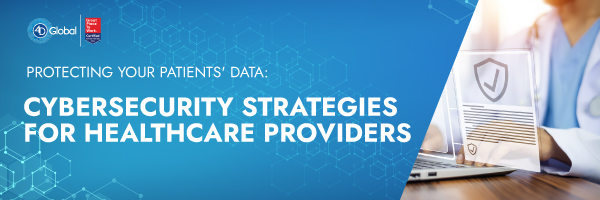
As the healthcare industry becomes increasingly digital, the protection of patient information has become a top priority. Cybersecurity threats in healthcare have become more sophisticated and frequent, making it essential for healthcare organizations to take the necessary steps to safeguard sensitive patient data.
Why is Cybersecurity Important in Healthcare?
The healthcare industry is a prime target for cyberattacks due to the valuable patient information that is stored in electronic health records (EHRs). This information includes personal identifying information, medical history, and insurance information, which can be sold on the dark web or used for fraudulent purposes.
A cyberattack on a healthcare organization not only puts patient data at risk but can also disrupt the delivery of care. In the event of a ransomware attack, healthcare providers may not be able to access patient information, resulting in delays or even cancellations of appointments and procedures.
Steps for Healthcare Organizations to Improve Cybersecurity
Healthcare organizations must prioritize cybersecurity and take the necessary steps to protect patient data. Here are some steps that healthcare organizations can take to improve their cybersecurity measures:
- Conduct a Risk Assessment: Conducting a comprehensive risk assessment is the first step in identifying potential vulnerabilities in your cybersecurity system. A risk assessment can help you identify weaknesses in your infrastructure and develop a plan to address them.
- Implement Strong Password Policies: Passwords are the first line of defense against cyberattacks. Implementing strong password policies, such as requiring complex passwords that are changed regularly, can help prevent unauthorized access to patient data.
- Train Employees on Cybersecurity: Employees are often the weakest link in a healthcare organization’s cybersecurity system. Providing regular training on cybersecurity best practices can help employees identify potential threats and take action to prevent them.
- Implement Access Controls: Access controls, such as two-factor authentication, can help prevent unauthorized access to patient data. Implementing access controls can help ensure that only authorized individuals have access to patient information.
- Regularly Update Software and Systems: Regularly updating software and systems can help prevent vulnerabilities in your cybersecurity system. Healthcare organizations should implement a regular schedule for updating software and systems and ensure that all updates are applied promptly.
Conclusion
Cybersecurity in healthcare is essential for protecting patient information and ensuring the delivery of quality care. Healthcare organizations must prioritize cybersecurity and take the necessary steps to safeguard sensitive patient data. Conducting a risk assessment, implementing strong password policies, training employees on cybersecurity, implementing access controls, and regularly updating software and systems are all essential steps in improving cybersecurity measures. By taking these steps, healthcare organizations can ensure that patient information is protected in the digital age.
